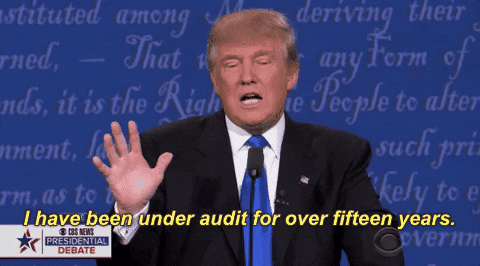Good morning 👋
This week, we’re doing another guest post with @MrFamilyOffice (last one linked here). This time he’s covering how to make due diligence an advantage for your fund.
Everybody has a different DD process.
Some are good; most aren’t.
This takes 20+ years of due diligence practice and sums it down to the following steps.
TL;DR:
Together with Artisan
Meet Ava, The World’s Best AI BDR
With a database of 250M+ leads, built-in email warmup, advanced lead research, and the ability to send 1000s of hyper-personalized emails, Ava provides end-to-end cold email automation. With plans starting from $225/mo and a 14-day hire trial, what are you waiting for?
Think you need a BDR? Hire Ava instead.
Disclose potential conflicts and risks 🕵️♂️

This is a big one.
At the outset of the due diligence process, lay your cards on the table. Be up-front about potential conflicts and risks.
Conflicts and risks will be discovered, they are always discovered. So you can bury your head in the sand until they are raised. At this point, the potential investor will start to question the deal and the people.
Or - you can get in front of the issue, disclose the risk areas and control the narrative and start to build trust.
It may feel counterintuitive to highlight risks, but addressing these issues at the start not only sets the stage for an open and transparent relationship but also saves everyone's time.
Prepare comprehensive documentation 📑

Again, it’s about being proactive, not reactive.
Realistically you know the data that will be required, so why wait to be asked?
Realistically you can prepare 90% of your data room before a single request has been made.
Some generic examples:
➡️ Financial records: Balance sheets, income statements, cash flow statements, and financial projections.
➡️ Legal documents: Contracts, agreements, leases, licenses, permits, and intellectual property filings.
➡️ Corporate governance documents: Articles of incorporation, bylaws, shareholder agreements, and board meeting minutes.
➡️ Tax documents: Tax returns, tax assessments, and correspondence with tax authorities.
➡️ Due diligence reports: Previous due diligence reports, if available, and responses to prior due diligence inquiries.
➡️ Regulatory compliance records: Certifications, permits, licenses, and compliance reports.
➡️ Employment records: Employee contracts, organizational charts, and human resources policies.
➡️ Intellectual property documentation: Patents, trademarks, copyrights, and licensing agreements.
➡️ Real estate documentation: Property deeds, leases, titles, surveys, and environmental assessments.
➡️ Insurance policies: Coverage details, claims history, and insurance agreements.
➡️ Customer and supplier contracts: Agreements with key customers and suppliers, including terms and conditions.
➡️ Marketing and sales data: Market research reports, sales forecasts, and marketing plans.
➡️ Technology and IT infrastructure: Software licenses, IT contracts, and data security protocols.
➡️ Environmental, Social, and Governance (ESG) documentation: ESG policies, sustainability reports, and corporate social responsibility initiatives.
➡️ Litigation and dispute resolution records: Legal proceedings, lawsuits, and settlements.
➡️ Financial due diligence materials: Audited financial statements, financial models, and valuation reports.
➡️ Risk assessments: Identification of potential risks, mitigation strategies, and risk management plans.
➡️ Operational documentation: Standard operating procedures, production schedules, and supply chain information.
➡️ Management bios and resumes: Background information on key executives and management team members.
➡️ Miscellaneous: Any other relevant documents or information specific to the deal or industry.
Establish clear communication 🗣️

Communication is king.
Appoint a highly competent frontman/woman.
This person liaises with the investors and should be able to handle inquiries promptly and transparently. Delayed, inaccurate or inconsistent responses can kill a deal outright.
While due diligence can be an admin-heavy role, make sure that the contact has sufficient experience to see the bigger picture.
Demonstrate compliance 📜

Don't wait for someone to ask – shout it from the rooftops!
Showcase your adherence and compliance to regulations, industry standards, and best practices.
Wear it as a badge of honor and a differentiating factor.
Provide case studies 📊

If you can, share your success stories.
In a case study, you can showcase your past successes and demonstrate your ability to deliver results. By presenting verifiable examples of how your business has overcome challenges, capitalized on opportunities, and achieved tangible outcomes, you provide prospective investors or partners with concrete evidence of your track record.
Case studies add depth and credibility to your offering. It allows stakeholders to see firsthand how your business operates in action, rather than relying solely on abstract promises or projections.
Case studies can serve as a powerful tool for building trust and confidence. They demonstrate your transparency and willingness to share real-world experiences, which can help alleviate concerns and uncertainties among investors or partners.
Offer references 📞

References and testimonials are a great way to build credibility.
Adding contacts from previous clients or partners who can vouch for your performance adds a layer of credibility to your due diligence pack. These individuals should have firsthand experience working with you and be able to speak to your professionalism, reliability, and ability to deliver results.
Conduct a third-party audit 🧐

This takes your due diligence to the next level.
It often makes sense to commission a third-party consultant to carry out audit procedures on your materials.
A third-party audit from the likes of the Big Four accounting companies can demonstrate confidence in your product, can save time later on and can build trust in the process.
For often a relatively small cost, weeks or months can be saved in the due diligence process.
Maintain a strong online presence 🌐

Step 1 of any due diligence usually starts with a Google search. This usually provides insights into a company's reputation, online presence, and public perception. Therefore, businesses must ensure that their website and social media profiles are not only up-to-date but also reflect professionalism and credibility.
Your website is a digital storefront and should be well-maintained and professional. It’s an easy way to showcase achievements and highlight corporate values.
Any negative online stories or unfavorable reviews should be addressed promptly and transparently. Ignoring or dismissing negative feedback can undermine trust and credibility, potentially derailing the due diligence process.
REFER
Earn free stuff 🎁
You can get free gifts by telling your friends and family to sign up 👇

{{rp_personalized_text}}
Copy & paste this link: {{rp_refer_url}}
Thanks for reading this far and giving us a little bit of your attention this week.
Feel free to unsubscribe whenever this stops becoming valuable to you.
- Clay




